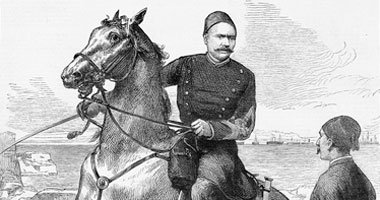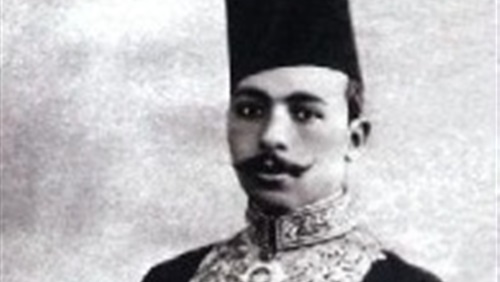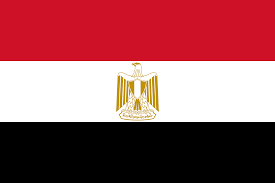Historical Eras

The Orabi Revolution and the British Occupation

On Tuesday, July 11th 1882, Egypt and Alexandria in particular came under heavy attack from the British Navy. On that day, the Egyptian Army and the whole population rose to defend valiantly their land, particularly as the population was in turmoil as the Revolution of Orabi was already under way, calling for the denial of injustice, oppression and foreign intervention in internal matters. Alexandria and its people stood firmly in support of the Orabi Revolution, but Britain and France considered this uprising as an imminent threat on their vital interests in Egypt and decided to send their navy in a flagrant act of war. The military intervention was heavy with six frigates from each country reaching Alexandria and causing a major disruption in the public opinion of all Egyptians. The invasion of Alexandria by Britain and France occurred on Friday, May 19th, 1882 and continued thereon.
The invasion initiated numerous public marches and demonstrations until the notorious Alexandria Massacre occurred during which both foreigners and locals suffered many mortalities and injuries (49 killed and 38 injured among foreigners, 11 activists and 71 wounded of which 38 foreigners and 33 local citizens). The Orabi revolutionaries were particularly targeted and both Britain and France used the unrest as an excuse to further consolidate their hold on the situation in the country, claiming that the interests of their people were at risk. It wasn’t until May 1882 that Britain announced its intention to be the sole guardian of Egypt and began mobilizing even more navy vessels to strengthen its position in Egypt.
Admiral Seymour dispatched a telegraph to the British authorities announcing that he would begin shelling Alexandria within 24 hours if the castles and forts on the Ras Eltin peninsula and those overlooking the port were not handed over.
On Tuesday, July 11, 1882 A.D., Admiral Seymour gave the order to open fire on Alexandria from 7 a.m. till 6 p.m. with a totally unprecedented intensity and violence. On the other hand, the seafront defense lines were too weak to respond to such an intense assault and its projectiles would hardly hit water short of their target. The attack continued unabated until the evening of July 11 after a long and relentless pounding of all the buildings of Alexandria, with houses collapsing on their occupants and castles and fortifications mostly destroyed. Most of the population fled the city and spread around the Mahmoudeya Canal and the villages along the Cairo-Alexandria road and it is estimated that they were around 150,000 people.
At 6 p.m. on Wednesday July 12, 1882, the forts and castles of Alexandria could not keep up with the intensity of the shelling and Admiral Seymour ordered that the attack should stop after assessing the ravage and damage caused to Alexandria. Egyptian officers, soldiers and the whole population had gathered to fight back and repel the attack in the most admirable way. Sheikh Mohamed Abdu had witnessed these heroic acts and said: Men and women were under a rain of fire and cannons and pushed their own ammunitions to the canoneers who responded most admiringly). Ahmed Orabi also said: During the battle, many men and women volunteered to help the fighters with ammunitions, water and nursing the wounded and help transfer them to hospitals.
On July 16th, 1882, Admiral Seymour in coordination with the Khedive Tawfik agreed that two ships would be sent to control the area of Abu Kir if Orabi would attempt to block this area or flood it with sea water.
On July 20th, the Khedive ordered that Orabi would be isolated from his post at the Ministry of Defense and the Navy and appointed Amr Pasha Lotfy – Governor of Alexandria – instead and called for a unified support of the British and the denial of any help to the Orabi activists.
In response, the whole population stood by Orabi and the British sent further support to their troops in Alexandria, but as fighting intensified, the Orabi fighters started having the upper hand. It wasn’t until the British invaded Egypt from the East that their total control was firmly established.
Alexandria recovered from the extensive damage it suffered despite the British occupation and the severe obstacles that it entailed and the port still remained the most important commercial port in Egypt and the second capital of the country.
The British maintained Alexandria in order to serve as their main naval base for the British Navy in the Mediterranean, but with intensive patriotic feelings and the strong drive for independence by Moustafa Kamel, revolutionaries started to call for action to liberate Egypt following the First World War.

Moustafa Kamel and the support of Alexandria
After the Orabi revolution, the movement for freedom by Moustafa Kamel and his followers started to grow/ emerged from Alexandria. On March 3rd, 1896, he gave his first popular speech before a large crowd of Egyptians and foreigners who expressed their deep admiration, appreciation and support for his cause and voices calling for the evacuation of the British occupation rose high in cheers.
The strongest shock to the Egyptians had been the tacit agreement between the French and the British according to which France would no more object to the British occupation in Egypt. Since France had been a strong supporter of the independence of Egypt, the withdrawal of France from the political scene meant the loss of a major supporter for the cause. In a speech delivered on June 7, 1904, Kamel called on Egyptians to rely only on themselves and to seek their independence on their own. In his last speech of October 22, 1907, after the resignation of Lord Kromer following the strong campaign decrying the massacre of Denshway, Kamel called on Egyptians to stand strong and firm in their fight for independence.
Thus, Alexandria remained the stronghold of Moustafa Kamel and his main inspirational muse for the patriotic slogans that called on Egyptians to remain firm and active in their fight.

